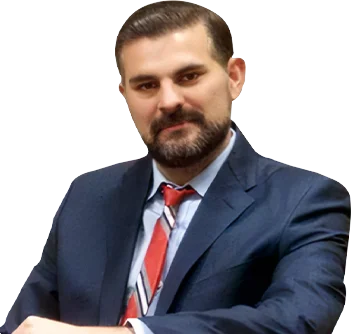When recovering from an accident, dealing with insurance companies is often one of the most challenging aspects. You might wonder: Can I secretly record my insurance adjuster when they talk to me?
At GLG Personal Injury Lawyers, we speak with accident victims in Phoenix every day, and this is one of the most common questions we hear.
In short, the answer depends on where you are, who is recording, and how you use it. Because Arizona is a one‑party consent state, there is legal leeway, but also risks. Below, we break it down in plain terms, offer smart strategies, and caution you about ethical and legal pitfalls. If you need representation, we are your trusted Phoenix personal injury lawyer, guiding you now.
Arizona Recording Law: One‑Party Consent Explained
What Arizona Statutes Allow
Under Arizona law, you may record a conversation you are part of without first telling the other party. Arizona’s wiretapping and electronic surveillance statute (A.R.S. § 13‑3005) is classified as a “one‑party consent” regime.
This means:
- You can legally tape or record a call or in‑person conversation as long as you (the recorder) are a party to it.
- You do not need the adjuster’s permission in advance.
- You may not, however, record a conversation in which you are not participating, unless one party consents. That would be illegal.
Limits & Contexts: Privacy Is Key
That legal right is not absolute. Several caveats and limits exist:
- The recording must not intercept a private or confidential communication where participants reasonably expect privacy (for example, inside a private office meeting or behind closed doors) without their consent.
- Secret video recording, especially in private spaces (restrooms, locker rooms, or places where someone expects privacy), can violate Arizona’s voyeurism and surveillance laws (A.R.S. § 13‑3019).
- If you are recording conversations that cross state lines or involve parties in states that require two‑party consent, you may run into conflicting laws.
- Even legal recordings may be challenged in court on grounds of unfairness, prejudice, or improper use.
In other words, you have some ability to record, but doing so secretly may raise legal and ethical landmines.
Ethics and Practical Risks for Secret Recordings
Just because it might be legal does not mean it is wise. As your Phoenix accident attorney in Phoenix, AZ, we always weigh the strategic benefits against the risks.
Professional Ethics Considerations
In 2020, the Arizona Supreme Court’s Attorney Ethics Advisory Committee issued an opinion stating that an undisclosed recording by a lawyer or at a lawyer’s direction is not automatically unethical, so long as it complies with the law.
But the advisory opinion warns of serious risks, especially:
- Violating trust or confidentiality
- Using means that serve no purpose other than embarrassment
- Engaging in deception or misrepresentation (which could conflict with the rules of conduct)
Many prior ethics opinions in Arizona discouraged secret recordings, associating them with deceit.
Thus, even if you legally record, you could undermine your credibility or provoke objections in negotiation or court.
Practical Risks and Obstacles
- Admissibility in Court: If the other side challenges the recording as unfair or improper, the judge may exclude it or require you to demonstrate the necessity and context.
- Counterclaims or Accusations: The insurance company could accuse you of invasion of privacy or misconduct, complicating your case.
- Loss of Leverage: If the adjuster believes you are secretly recording, they may become combative, refuse to talk, or insist all future communications be in writing.
- Technological failures or misinterpretations: Poor audio, murky context, or selective editing may backfire and be used against you.
Given these risks, secretly recording is a tactic that should be used with care, and ideally under the guidance of legal advice.
When Recording Makes Sense, and How to Do It Safely
If we at GLG are advising you, here is how we think about recording strategies:
Disclosed vs Undisclosed Recording
A safer approach is to disclose that you are recording the conversation. Doing so may defuse objections, preserve trust, and protect professional norms. If you cannot obtain disclosure, consider limiting recording to situations where it is legal and you are confident that the benefits outweigh the risks.
Best Practices for Recording Conversations
- Use a device that reliably captures quality audio (smartphone, digital recorder). Always test it before recording.
- Begin the conversation by verbally stating your name and date/time, and what you are doing (“I am going to record this call for my records”). This gives it a formal context.
- Avoid recording everything just for the sake of it—record critical or contentious negotiations or instructions.
- Maintain the original recording; do not edit or splice segments in ways that introduce misrepresentation.
- If the adjuster declines to talk while recorded, switch to written (email) communication for important points.
When to Consult Your Lawyer First
Before pressing “record,” we recommend contacting your accident attorney in Phoenix, AZ (like us). We can:
- Advise whether it is legally safe in your particular case
- Help you phrase disclosures or follow ethical standards
- Support the use of recordings strategically (if used)
As your Phoenix personal injury lawyer, we can undertake or supervise recordings in accordance with legal and ethical frameworks, while protecting you from misuse.
Should You Record Your Insurance Adjuster? A Strategy Checklist
Here is a quick decision tool to guide you:
| Question | Yes → proceed cautiously | No → avoid recording secretly |
| Are you a party in the conversation? | You satisfy the basic legal requirement | Illegal or at least legally dubious to record |
| Is the setting one in which privacy is expected? | Be cautious—could trigger privacy objections | Avoid recording |
| Would disclosing the recording still yield the needed information? | Safer route | Consider not recording |
| Could the adjuster refuse further communication if you record secretly? | Possible risk | Plan for fallback (e.g. emails) |
| Will recording help your claim in a meaningful way (e.g. capture contradictory statements)? | Potential strategic gain | Recording may complicate more than help |
If most answers point toward risk, do not record secretly. Instead focus on documenting via written communication, demand letters, or legal counsel.
What You Should Do Instead: Smarter Alternatives
Here are safer, more reliable strategies to protect your rights in conversations with adjusters:
- Stick to Written Communication: Email or text messages leave a permanent, timestamped record. Even when speaking by phone, follow up with a written summary.
- Take Detailed Notes: During calls, record the names, dates, times, promises, and key details of who you spoke with. Write or type immediately afterward to preserve accuracy.
- Request Recording by Mutual Consent: Ask the adjuster to record the conversation for clarity or mutual benefit. Many adjusters agree if asked bluntly.
- Have Your Lawyer Intervene: When tensions rise or negotiations grow complex, direct further communications through your attorney. We know how to handle adjusters and preserve evidence properly.
- Record Only with Attorney Oversight: If recording is necessary, your attorney can manage it within legal and ethical boundaries to avoid potential pitfalls.
How This Applies in Phoenix Injury Cases
As a Phoenix personal injury lawyer, we see insurance companies in Maricopa County applying pressure quickly. They may call you, ask for statements, flag deadlines, or make low offers in advance. They know many crash victims are overwhelmed and may say things that hurt their case.
When we represent you, we use our local experience to manage adjusters aggressively but carefully. We:
- Secure evidence early (photos, police reports, witness statements) before recordings matter
- Control communication—we often handle adjuster calls directly
- Use strategic recordings only when necessary and defensible
- Prepare demands and negotiations grounded in documented medical, financial, and expert support
Your goal is not to surprise or trap the adjuster, but to ensure your full story is told, with proof, and without risking legal backlash. A skilled accident attorney in Phoenix, AZ, can navigate that balance.
Final Thoughts and Recommendations
- In Arizona, you may legally record a conversation you are part of without notifying the other party, but only under one‑party consent rules.
- Secret recording is not a free pass. You must avoid privacy violations, respect ethical norms, and anticipate objections.
- The safest approach is to disclose recording, rely on written communication, or let your attorney handle the conversation.
- If you ever wonder whether a recording is worth the risk, call us first. As your Phoenix personal injury lawyer, we can advise and act for you.
If you are facing pressure from an insurance adjuster or are uncertain about how to preserve your rights after a crash, contact GLG Personal Injury Lawyers. We are ready to review your case, guide your communication strategy, and fight for the full compensation you deserve.
Let us put over thirty years of combined experience to work for you in Phoenix. When you need an accident lawyer in Phoenix, AZ, you deserve representation that combines legal skill, local insight, and compassion. We stand ready to help.



